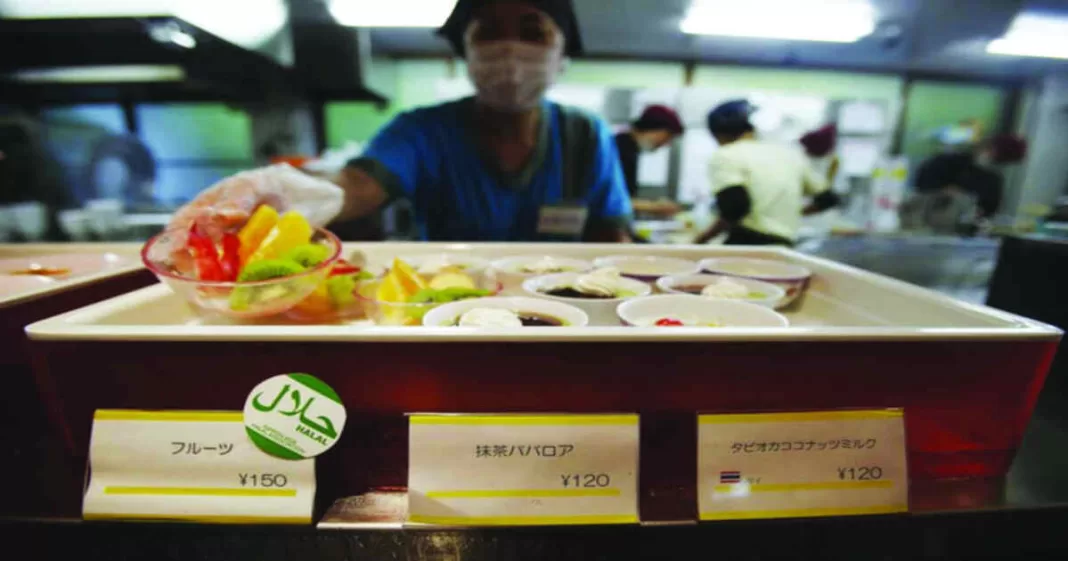By Shelley Emling
Cox International Correspondent
London —- Harrods, perhaps the toniest department store in the world,
is known for its tea tins, Beluga caviar, and 350 varieties of cheese.
Now it’s also known for its range of halal food products.
With
nearly 2 million Muslims living in Britain, few businesses here can
ignore the growing demand for foods that are permissible for
consumption under Islamic law. And the same phenomenon is taking place
in the United States and other countries.
Harrods has started
stocking halal Belgian chocolates, cake bars, and other sweets supplied
by Cambridge-based Marhaba Halal Food.
“With the increasingly
diverse population, there is a growing demand for specialist foods that
cater to their diets,” said Shabana Pervez, UK manager of Marhaba.
Britain
represents only a small portion of the global market for halal
products, which was estimated at $560 billion in research presented at
the 2007 World Halal Forum, an industry conference.
The halal
industry has moved well beyond meat with a wide range of
Islam-compliant products —- everything from toothpaste to breakfast
cereal.
Halal, an Arabic term for “permissible,” means a lot
more than “no pork or alcohol.” For example, meat is halal only if the
animal is blessed in the name of Allah and then slaughtered facing
Mecca.
Industry experts say more and more Muslims are choosing
to be observant, fueling demand for halal products. Also spurring
growth in the halal market are non-Muslims who associate it with safer,
cleaner, and healthier foods.
Even McDonald’s restaurants around
the world, including two in Michigan, sell halal burgers and chicken
nuggets. The Swiss multinational Nestle, which earned more than $3.5
billion from the sale of halal products last year, peddles halal pastry
and pizza dough. And British grocery chains Tesco and Sainsbury’s
devote special shelving to halal items at their stores.
In the
United States, home to as many as 8 million Muslims, the market for
halal foods has undergone a spectacular surge of about 20 percent to 30
percent per year, said Jalel Aossey, a board member of Islamic Services
of America, a Cedar Rapids, Iowa-based halal certifier.
Muhammad
Chaudry, president of the Islamic Food and Nutrition Council of America
in Park Ridge, Ill., a large certifier of manufacturers producing halal
products, said they would certify 1,000 companies this year, compared
with 330 companies in 2002.
“The growth in demand is coming from
everywhere, including non-Muslim groups of consumers,” he said. “There
are many Asians here who are used to eating halal back home and so they
want to eat it again.”
Demand is greatest in the places where
the most Muslims are clustered —- New York City, Houston, Detroit, and
the state of Georgia.
“If you are searching for halal meat you
will likely find it in many urban areas,” said Ibrahim Hooper,
spokesman for the Council on American-Islamic Relations, a Muslim civil
rights and advocacy group in Washington, D.C.
A Web site that
tracks U.S. stores and restaurants that sell halal products —-
www.zabihah.com —- lists 65 restaurants and 35 stores selling halal
foods in the Atlanta area, compared with 41 restaurants and 28 stores
only three years ago.
One of these is the Almadina Halal meat market on Fayetteville Road.
Owner Mohamad Nassar said he was the only one in town selling halal products when he opened his store 19 years ago.
Not any more.
“Not
only are there more Muslims in the Atlanta area, but also Muslims in
general are becoming more devout and so are wanting more halal
products,” he said.
One global U.S. chain that is increasingly focused on halal foods is Subway.
Not
counting its locations in countries with majority Muslim populations,
the chain already provides halal products at 62 restaurants —- 58 in
Britain, one in Belgium, one in Germany, and two in New Jersey. Another
20 outlets with halal menus are due to open in Britain over the next
year.
Subway spokesman Les Winograd said that after successfully
doing business in the Middle East, the Connecticut-based chain decided
to take what it learned there and transfer it to more traditional and
established markets such as those in the United States and the UK.
“We wanted to open our doors to the many consumers who follow strict religious food traditions,” he said.



